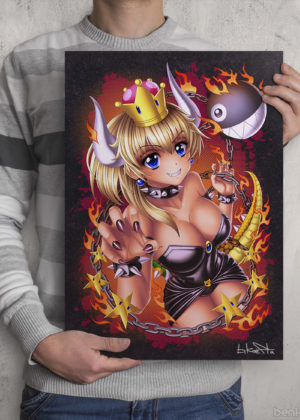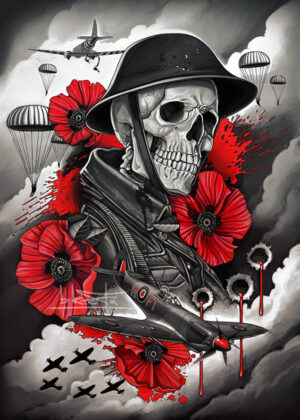
What digital drawing software would you recommend for a beginner, other than Adobe Photoshop?
I can’t say I have a great answer for this one since it’s been years since I used anything other than Photoshop. I guess the reason for using something other that Photoshop would be to save money. Or find something that suits you better- whether it be simpler and easier to use or more relevant to creating the type of art you produce. I used to like Paint tool Sai, Painter and Clip Studio Paint (was known as 'Manga Studio' back in the day when I used it). Krita should do the job if you don’t want to pay any money.
It's also worth looking into tablet based drawing apps which tend to be easier to learn with limited functionality. Autodesk Sketchbook, ArtRage and Procreate are spoken of highly within the artistic community. Although I've personally never tried them - I don't have an Ipad or Tablet computer.
The best thing would be to try all of the above and see which one suits you. Most Apps will provide at least a 30 day free trial if they're not already free. How about setting yourself a project to create an artwork with each piece of software? This would allow you enough time to evaluate it's pros and cons before making a decision about which to use on a regular basis.
What challenges do you often come across when creating your drawings? (software difficulties, time limits)?
Every single artwork usually has at least one challenge. The level of difficulty and challenge often depends on exactly what I’m creating and how complex it is.
Since I’ve been using digital software for so many years, I don’t usually get stuck with the software. Unless there’s some unusual conflict with my operating system, graphics driver or graphics tablet. Occasionally a new software update can set me back if there’s a new tool or process to learn.
Time is often an issue for me due to the fact I typically create artwork with an art style that has a high level of finish; so lots of smooth blending and attention to detail. This is generally more time consuming to create opposed to looser, sketchier or painterly styles. I've found that I work quite slowly in general- perhaps a trait or my perfectionist nature? So I've had to accept this is a fact and take it into consideration when sit down to create anything. Also over time I've learned when it's time to quit fiddling around with a piece of art and consider it finished. Sometimes setting yourself a deadline is enough to help determine when a piece of artwork can be considered finished.
I will be creating an original character of myself, what tips would you recommend for getting the right proportions and features of my character?
For proportions, stick to real life reference to start with. Then consider ways you can tweak your style to make it more ‘manga’ or whatever it is you want to go for. It might be worth taking photos of yourself at different angles and in different poses and sketching them in order to work with a base which you can then tweak and overlay with costume and accessories.
When creating a character and a background, would it be best for both to be detailed, or only one of them to keep the focus on one feature?
If the brief / objective is to create a character for example, concept art character designing, then focus entirely on the character. Sure, you can add background elements to give some context, but it’s not necessary to go too detailed unless you are deliberately illustrating a scene.
Do you have any other tips or recommendations on digital drawing or creating an original character?
Before even picking up a pencil, it’s worth writing down 3-6 themes or elements you want to include in the character. Ask yourself- What’s their gender? What genre/s are you designing for? What part of the world are they from? What’s their job/role? What kind of abilities do they have? What tools do they use to help with their duties? What type of clothing would make their job easier? For example:
Gender: Male
Genre: Medieval fantasy
From: The Mountains
Role: Hunter
Abilities: Strength, tactics and cunning
Tools: Bow and Arrow, Axe
Clothing: Something to keep him warm in the mountains and camouflaged and protected when hunting
Once you’ve figured out these questions, think of a feature that makes them special and stand out from every other generic hunter character. Maybe he’s got a crazy scars from battle, or a huge, magical bow that fires 20 arrows at once?
Also consider what wouldn’t work with this character. For example, a metal arm wouldn’t help if you’re in cold environments. Loud and colourful clothing wouldn’t help sneak up on your prey. It’s about creating something over the top and fun, but whilst still being somewhat believable. I touch on this question in both The Artists Guide to Drawing Manga and Digital Manga also.
~~~
If there's a question you'd like answered relating to art, or digital illustration, feel free to contact me or leave a comment.
















 RSS – Posts
RSS – Posts
You can get bright and shiny colours with all of those. Although for deep, solid colour I'd choose to go with acrylic paint. Markers can look a little watery and pencil can sometimes look grainy, depending on the type of pencils and paper you use. Paint definitely takes the most practice. With paint it's more a case of working with larger brushes and areas before focusing on and refining details. Where as markers are more consistent, whereby you'd more likely finish a smaller area of the artwork at a time before moving on to the next area. Perhaps I'll create some basic tutorials on these if there's enough interest :)
Do I need a Drawing Glove for my Digital Art?